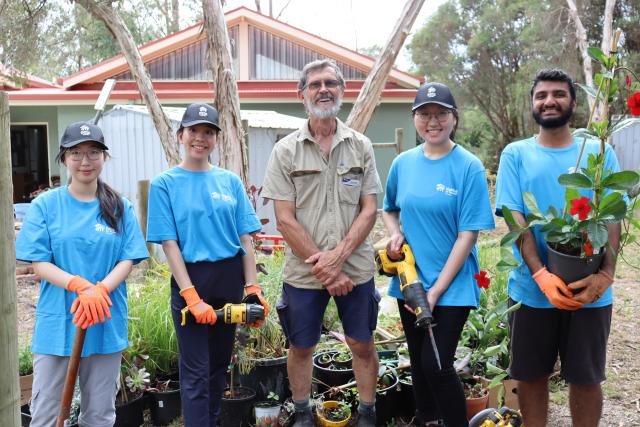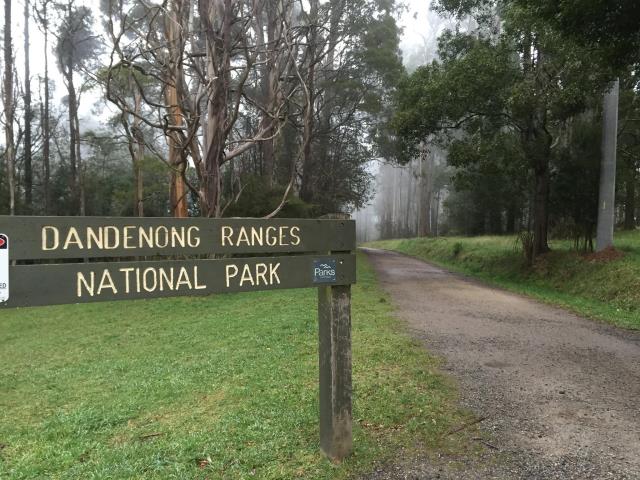Volunteers have been working hard to restore a dilapidated garden to its former glory while giving it a new purpose.
Mieke Alexander and a team of Habitat for Humanity volunteers have been chipping away at the overgrown garden at The Bridge House in Kilsyth to create a welcoming space.
Wanting to create a space for everyone to enjoy some peace and quiet, Ms Alexander’s vision also has the intention of recognising women and children who have escaped family violence.
“This is about those people, the people you never hear about. I drove through an avenue of honour and I had just met another person who’d been misused by their family and I thought no one recognises all the unheard people,” she said.
Called the ‘Kilsyth Garden of Contemplation’, Ms Alexander said it does not matter if women who have left violent households don’t come to the garden but she said it is important for them to know they are not invisible.
“You don’t have to come here. You just know we know you are there. You’re not invisible. Having taught a lot of kids, that’s really what it’s about with me – you are not invisible.”
During March, Habitat for Humanity is undertaking an International Women’s Day Activity Month and program manager Thomas Alexander said the garden redevelopment fits nicely with it’s other projects.
“We do help a number of shelters, so we’re going out to Benwerren next week, a women’s shelter in Yarra Glen and we’re doing similar work there,” he said.
“I figured this fit pretty closely with our women’s month bringing awareness to family violence and we have that power of bringing volunteers to any sort of project.”
Groups of volunteers from the University of Melbourne worked on ripping out weeds, laying paths and building archways for three days, with Mr Alexander saying they removed about 10 cubic metres of green waste and one cubic metre of hard rubbish.
Plants and paint were supplied by local businesses, with all the timber donated by Treasuring our Trees, a charity in the Dandenong Ranges repurposing fallen trees from the June storms.
The design of the garden includes a kids’ space, a quiet sitting area and a mosaic garden to use and remember the previous garden design.
“We’ve taken away all the really harsh plants and we’re painting [the tire] in a gentle colour, so it doesn’t look so masculine and although this is not only for women, it will be soft plants and everything will be sustainable and beautiful,” Ms Alexander said.
For Ms Alexander, as a former primary school teacher, recognising the children and their trauma is important as well, that’s why the garden includes a dedicated area for them.
“As a teacher, I’ve seen lots of kids whose parents did not exactly treat them correctly and we don’t talk about kids enough,” she said.
Ms Alexander will take on the rest of the planting and final touches ready to open on 8 March, with the garden ready to be used by all from then on.
“You don’t need to put a flag up. You don’t need to say anything we know quietly. So if they come and sit there on their own or if they can never come here, to me that’s not important.
“It’s just important that it’s a bit like a roll call or a recognition of all the unknowns and unspokens. And it is for International Women’s Day, but in my mind, it’s for the children too.”







